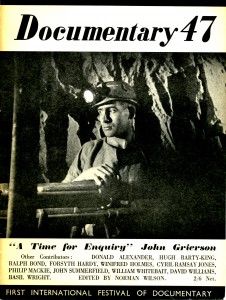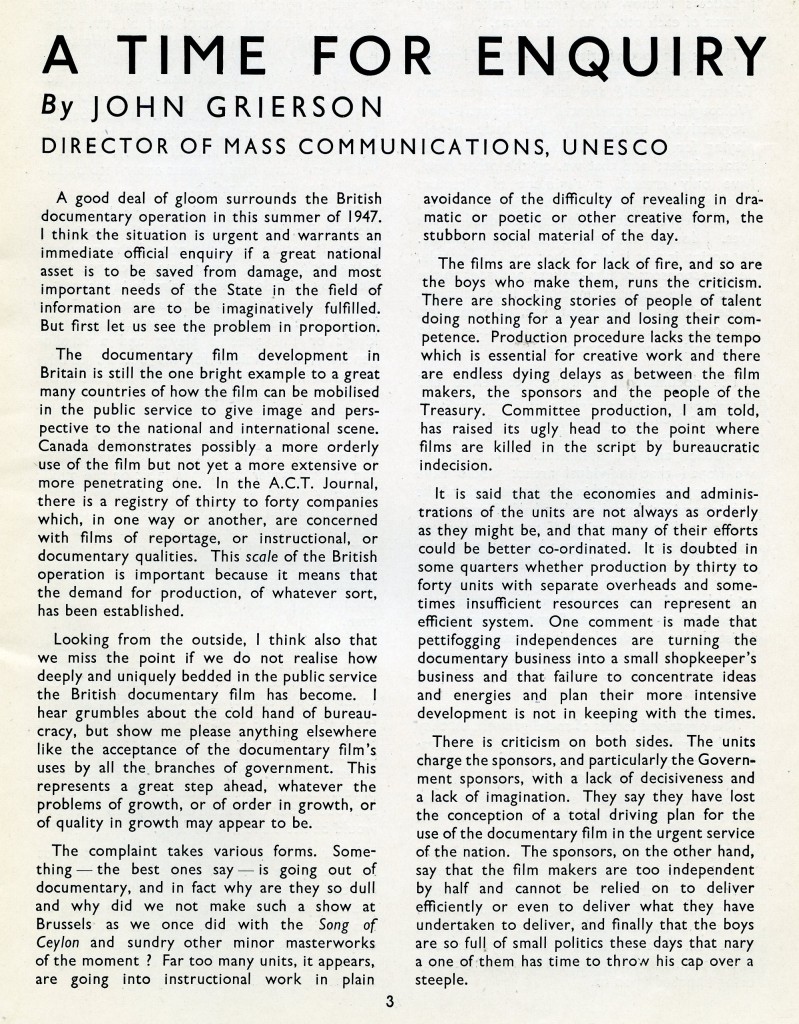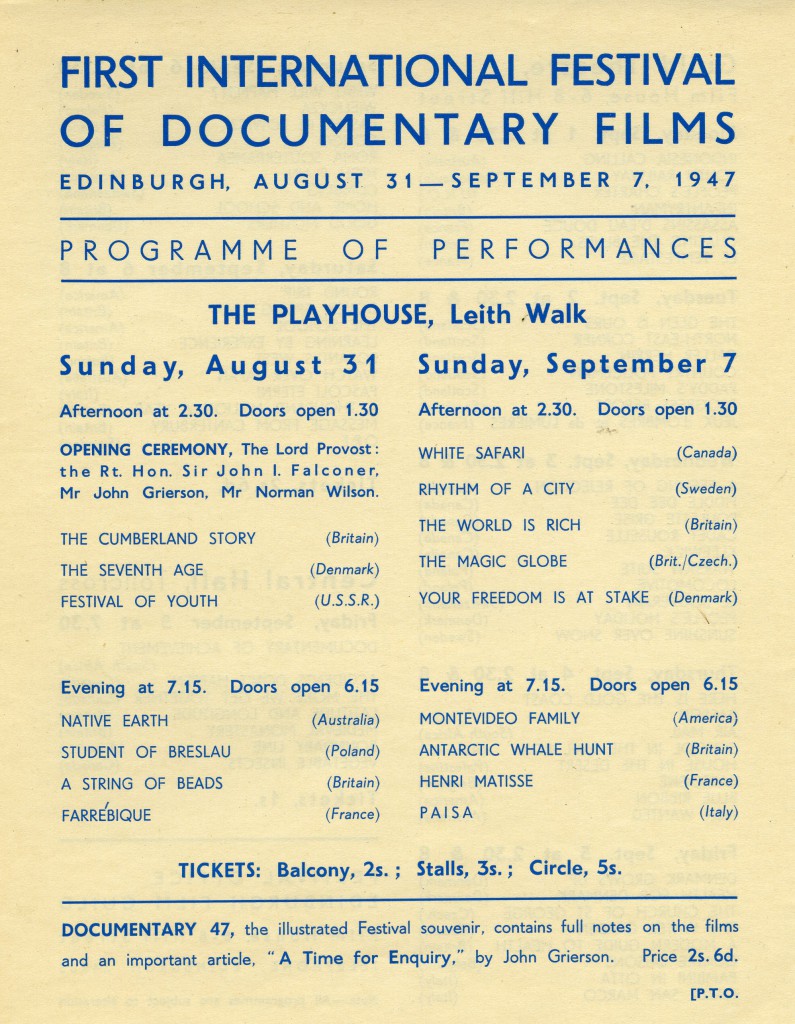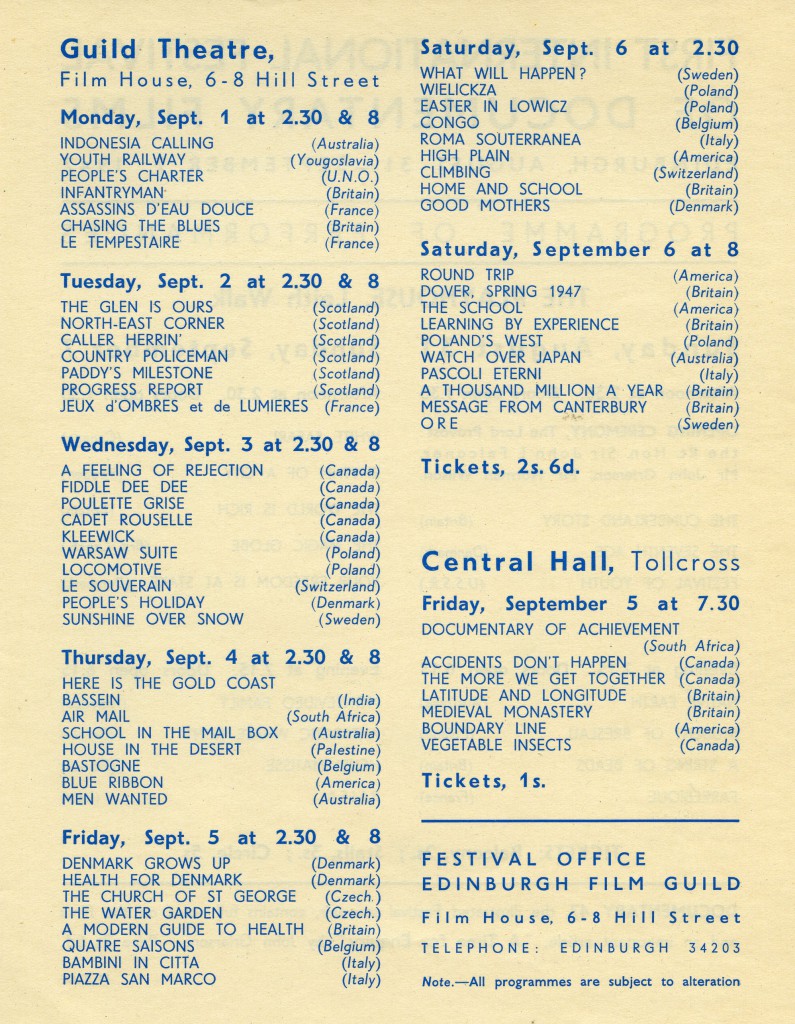
As the Edinburgh International Film Festival gets ready to commence on 18 June, it’s interesting to reflect on how one the oldest and indeed the longest continually run film festival came to be. Its roots date back to the postwar cultural revitalization of Scotland. In 1947 the Edinburgh International Festival of Music and Drama was established, and Norman Wilson realized that the medium of film was not going to be represented. Recognizing that this was a perfect venue to showcase film–as film historian Thomas Elsaesser later termed it, a ‘cultural clustering,’ a mixture of different art forms coming together for a rich community experience–Wilson, along with the Edinburgh Film Guild, went into action and took on the challenge of bringing a film festival together with limited financial backing.
“The aim of the founders, the Edinburgh Film Guild, was to have the cinema worthily represented at the first international Festival of the arts to be held in Britain” (ref. Grierson Archive, G7:44:61).The world was watching and they did not want to fail this challenge. In determining what their focus would be, they decided to showcase Scotland’s strongest contribution to film—documentaries.
“The first international Film Festival to be held in Britain will be devoted entirely to Documentary. This is no accident; for not only does Britain lead the world in documentary production, but the documentary approach—an innate feeling for reality—is now the distinguishing characteristic of British feature films” (ref. Hardy 3:9:8)
With the focus on documentaries, who better to invite to give the opening address and set the tone for the festival than Scottish-born John Grierson, the father of the British documentary movement?

The first film festival was modest, with only about seventy-five films shown during the eight day festival, but with the critically acclaimed films they did showcase, including Roberto Rossellini’s Paisan and Georges Rouquier’s Farrebique, they set the standard for what to expect at the festival.

Norman Wilson, serving as Chairman of the Advisory Committee of the Festival in 1950 , explained what kind of films the festival looks for and the power of documentaries:
“It is the film of reality that the Edinburgh Festival is especially concerned with, and many people believe it is in this sphere that film-makers come nearest to the basic qualities of the cinema as a medium of creative arts. The great virtue of the film is that it can capture reality through the lens of the camera. By getting art into the country, and into the city streets among real people—into the world of everyday, which has within itself all the drama and romance of life without fabrication—the film can interpret and synthesis realities in its own creative terms. That is its unique quality as an art form, and that is what we look for in the films selected for showing at the Edinburgh Festival.” (ref. Hardy 3:8:1)
(Kelly Kloser, M.Litt. in Film Studies)
